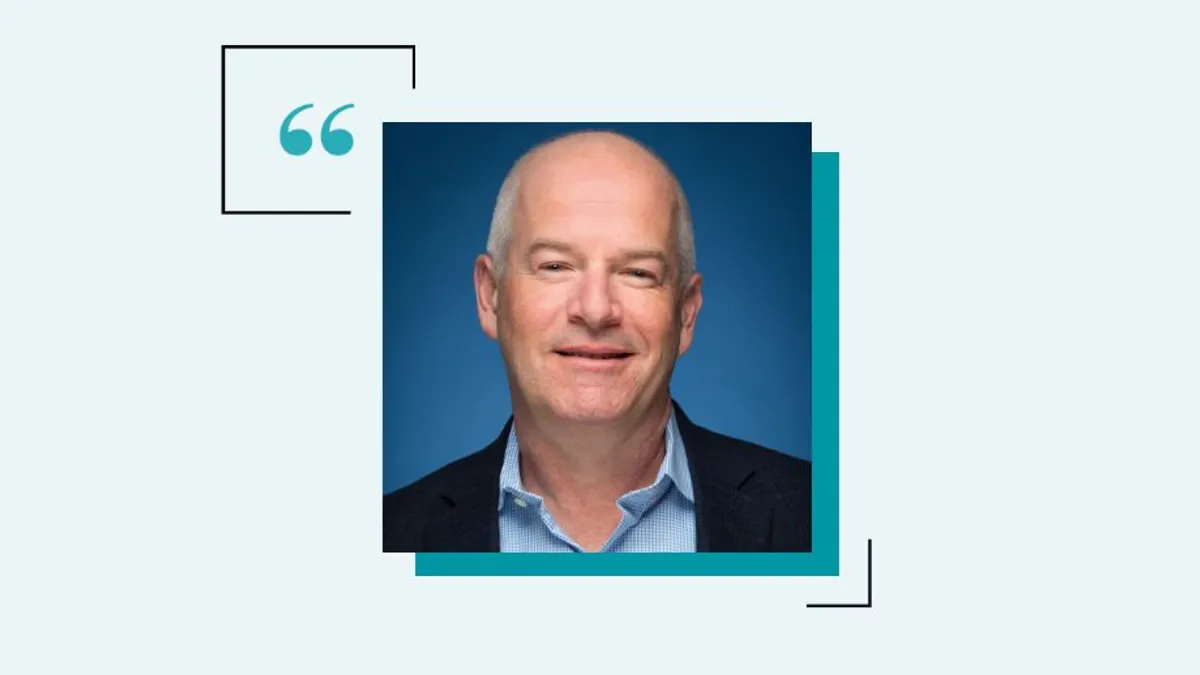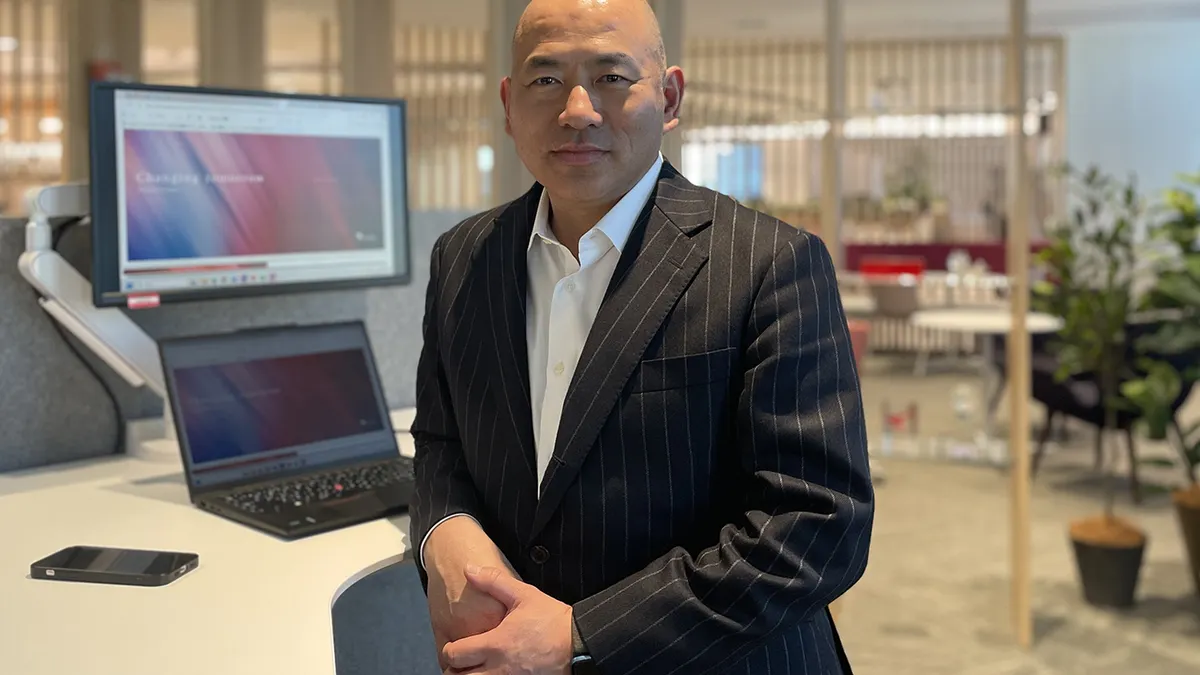Knowing the intricacies of the business as a finance leader is essential for success. The process through which these lessons are acquired, whether through higher education, mentorship, or work experience, contributes to career development and creates individual value in a CFO, thanks to a unique set of skills.
For Chris Greiner, CFO of Zeta Global, an AI-powered marketing cloud provider, his experience in various C-suite roles, managerial positions, and sales roles throughout his career enabled him to take three companies public, including Zeta. Now, fresh off his company's third annual tradeshow Zeta Live, Greiner's venture into public speaking and panel hosting seems to be the next step in his career development.
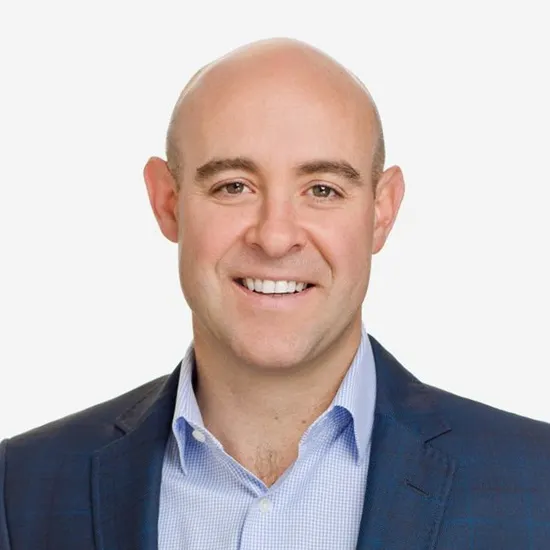
Chris Greiner
CFO, Zeta Global
First CFO position: 2010
Notable previous companies:
- LivePerson
- Inovalon
- IBM
This interview has been edited for brevity and clarity.
ADAM ZAKI: Events are a space that many companies are interested in exploring. What makes the cost of an event worth it from an organizational standpoint?
CHRIS GREINER: We recognize in a post-pandemic world, people want more genuine human connections and enriching experiences. With Zeta Live, we are creating communal opportunities for marketing experts to develop relationships and give attendees a better understanding of the Zeta Marketing Platform.
Of course, there is an expense associated with that, but it pales to the ROI generated by expanding our brand and converting prospects into loyal customers.
You've hosted panels and talked on stage at these events. What benefits do you get from putting yourself out there and hosting a panel or discussion?
GREINER: Evolving as an individual and business leader is putting yourself in situations with people who are additive to your own perspectives and experiences.
So, now put that in the context of Zeta Live. When you consider the breadth of speakers and panelists at our event, it is a 360-degree view of world thinkers — not just world-class marketers — so when given the opportunity to host a panel with several of them, I jumped at the idea.
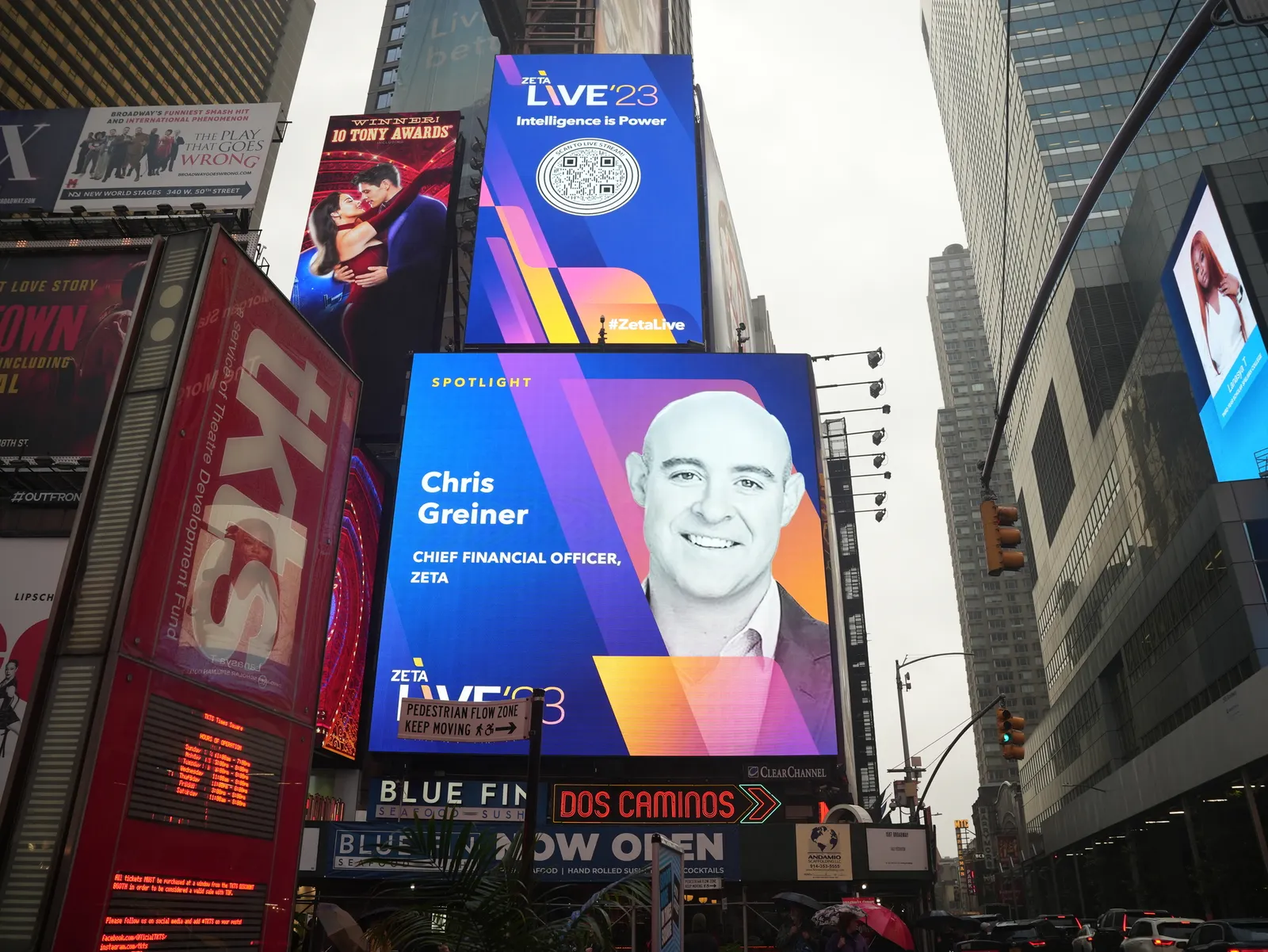
How would you describe the value of strong communication skills in the development of a finance leader?
GREINER: There are many nuances to effective communication, but if I had to distill it down to a few key pillars, they would be to be concise, be clear, and be consistent.
As CFOs, we interact with many different constituencies on a daily basis ranging from employees to customers to shareholders to board members and even leaders in the community. Keeping these guideposts in mind will allow CFOs to build trust and alignment within their organization.
You have experience taking technology companies public, including Zeta, in 2021. Since making the transition, what has changed most about your role?
GREINER: I’ve had the privilege of serving as a CFO of three different public software companies, two of which I helped to take public. Interestingly, the roles that best prepared me for the transition from a private to a public company were those outside the office of finance.
Having held chief product officer, chief operating officer, general manager, and sales roles at those public companies, I had a unique understanding of how the roles of my colleagues would evolve and therefore, how I needed to change as their CFO.
"Evolving as an individual and business leader is putting yourself in situations with people who are additive to your own perspectives and experiences."

Chris Greiner
CFO, Zeta Global
One may assume the biggest change for a CFO in going “private to public” is collaborating externally with analysts and investors, which is true to some extent. However, in my experience, the biggest shift was in how I needed to partner internally with my colleagues in product, operations, and sales. This creates the opportunity to break from the mold of “reporting the news” to “making the news”.
What are your thoughts on work environments, particularly in-office versus work from home, and in what ways do you and your fellow executives ensure your employee's productivity remains high?
GREINER: Let’s start with where value is created: building the market-leading product and having the most efficient and effective way to sell it. Designing your in-office culture should start with those principles in mind, right?
For example, we took Zeta public in June of 2021 with a fully remote workforce. If given that option at the last company I helped take public in 2015, I would have said, “Impossible!”
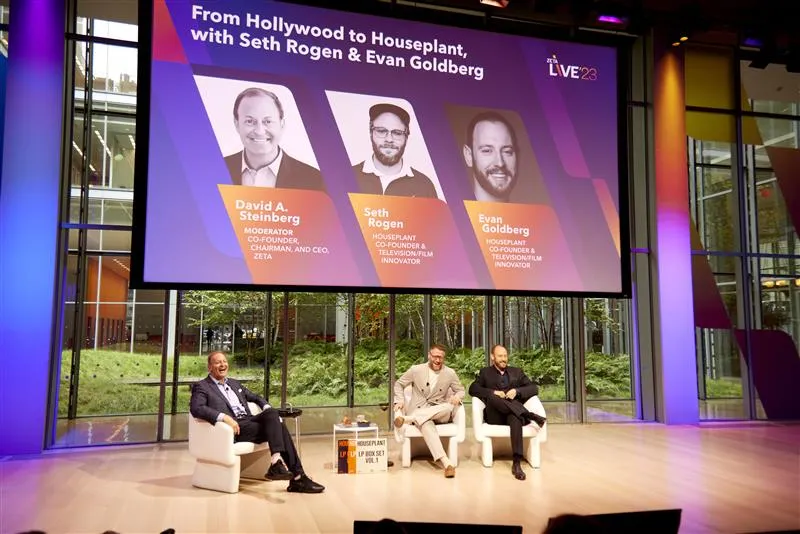
The truth is we don’t live in a “one size fits all” world. At Zeta, we give our leaders and teammates the flexibility to prioritize time for in-person collaboration and innovation, while also building trust that productivity can flourish in a remote setting as well.
As the in-office culture over the last three years has evolved — and as we’ve evolved our in-office practices — what is most interesting is our revenue growth rates have accelerated every year since 2020.
What are some metrics or KPIs you're watching closely to close out the year?
GREINER: In early 2022, Zeta released our long-term financial plan to generate at least $1 billion in revenue, at least $200 million in adjusted EBITDA, and at least $110 million of free cash flow by the end of 2025. However, we took it a step further by providing metrics and projections for where each should be, so analysts and investors can model Zeta’s trajectory using the same KPIs we do internally to forecast our business.
Not only does this create strong alignment internally and externally, but it allows us to have a data-driven response to questions on how we are pacing — to our long-term plan. In fact, at our investor day on Sept. 27th, I communicated we expected to achieve our long-term plan early.
The financial metrics that underpin our long-term model, and those we focus on daily are customer additions, average spend per customer, net revenue retention, channel mix, and sales productivity.









